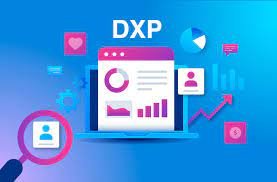As customer expectations evolve toward hyper-personalized, omnichannel engagement, enterprises are rethinking their digital ecosystems. At the center of this transformation lies the Digital Experience Platform (DXP)—a unified solution designed to manage, deliver, and optimize customer experiences across digital touchpoints.
A DXP integrates content, data, and technologies to enable real-time personalization, consistent brand messaging, and end-to-end journey orchestration. It empowers organizations to deliver not just digital interactions—but connected, context-rich experiences that drive loyalty and conversion.
Core Capabilities of Modern DXPs
- Unified Content Management
Enables centralized creation, governance, and distribution of content across websites, mobile apps, and other interfaces—ensuring message consistency and regulatory compliance. - Enterprise Digital Asset Management (DAM)
Provides secure storage and structured retrieval of multimedia assets (e.g., videos, images, documents), enhancing brand consistency and team efficiency. - AI-Powered Personalization
Dynamically adapts experiences based on behavioral insights, demographics, and real-time context—improving engagement, conversion, and customer satisfaction. - Commerce Enablement
Integrates e-commerce features to facilitate seamless product discovery, transactions, and customer service across digital storefronts. - Advanced Analytics & Intelligence
Leverages data analytics and visualization tools to monitor user behavior, optimize content strategies, and measure ROI on experience initiatives. - Customer Data Platform (CDP) Integration
Aggregates customer data across channels into unified profiles, enabling targeted experiences and informed decision-making. - Omnichannel Delivery
Ensures consistent, responsive experiences across web, mobile, social media, kiosks, and connected devices (IoT), with adaptive design and content reuse. - Interoperability & API Ecosystems
Supports seamless integration with marketing automation, CRM, ERP, and other enterprise systems—ensuring agility and extensibility.
Leading DXPs to Watch in 2025
Based on user sentiment and analyst assessments (e.g., Gartner Peer Insights), the following platforms stand out for innovation, scale, and impact:
- Adobe Experience Cloud
Comprehensive and AI-driven, Adobe’s suite supports enterprise-grade personalization, content orchestration, and marketing automation. - Salesforce Experience Cloud
Known for seamless CRM integration, it delivers personalized experiences by leveraging unified customer data across every channel. - Sitecore Experience Platform
Offers robust content, commerce, and customer intelligence capabilities—enabling deep personalization and campaign management. - Progress Sitefinity
Combines low-code usability with flexible content management and targeted digital marketing tools for mid-to-large enterprises. - Liferay DXP
Strong in integration and extensibility, Liferay supports complex portals, intranets, and customer self-service platforms. - Kentico Xperience 13
Offers a hybrid-headless architecture, combining structured content management with flexible frontend delivery. - Bloomreach
Focuses on AI-driven personalization, digital commerce search optimization, and modular API-based architecture. - Pimcore
Open-source and highly customizable, Pimcore blends product, content, and digital experience management into a single stack. - Crownpeak DXP
Delivers rapid deployment, cloud-native infrastructure, and compliance support—ideal for organizations prioritizing speed and agility. - Optimizely One (formerly Episerver)
Pioneers in experimentation and A/B testing, Optimizely empowers organizations to continuously test and refine digital experiences.
Strategic Considerations for DXP Selection
To ensure successful adoption, enterprise leaders should align platform capabilities with broader business and technology strategies:
| Dimension | Strategic Questions |
| Business Fit | Does the DXP support your customer journey strategy, industry compliance, and scale? |
| Scalability & Performance | Can it handle increasing traffic, content volume, and global deployments? |
| Integration Readiness | How well does it connect with existing martech and core business systems? |
| User Experience | Is the platform intuitive for marketers, developers, and content authors alike? |
| Vendor Ecosystem | What level of support, community engagement, and roadmap innovation is available? |
Conclusion: DXPs as Strategic Enablers of Digital Maturity
In 2025, Digital Experience Platforms are not just marketing tools—they are strategic infrastructure for delivering personalized, scalable, and measurable customer engagement. The right DXP aligns technology with vision, enabling real-time responsiveness and elevating the total customer experience.
For enterprises pursuing customer-centric transformation, a modern DXP isn’t optional—it’s foundational.

